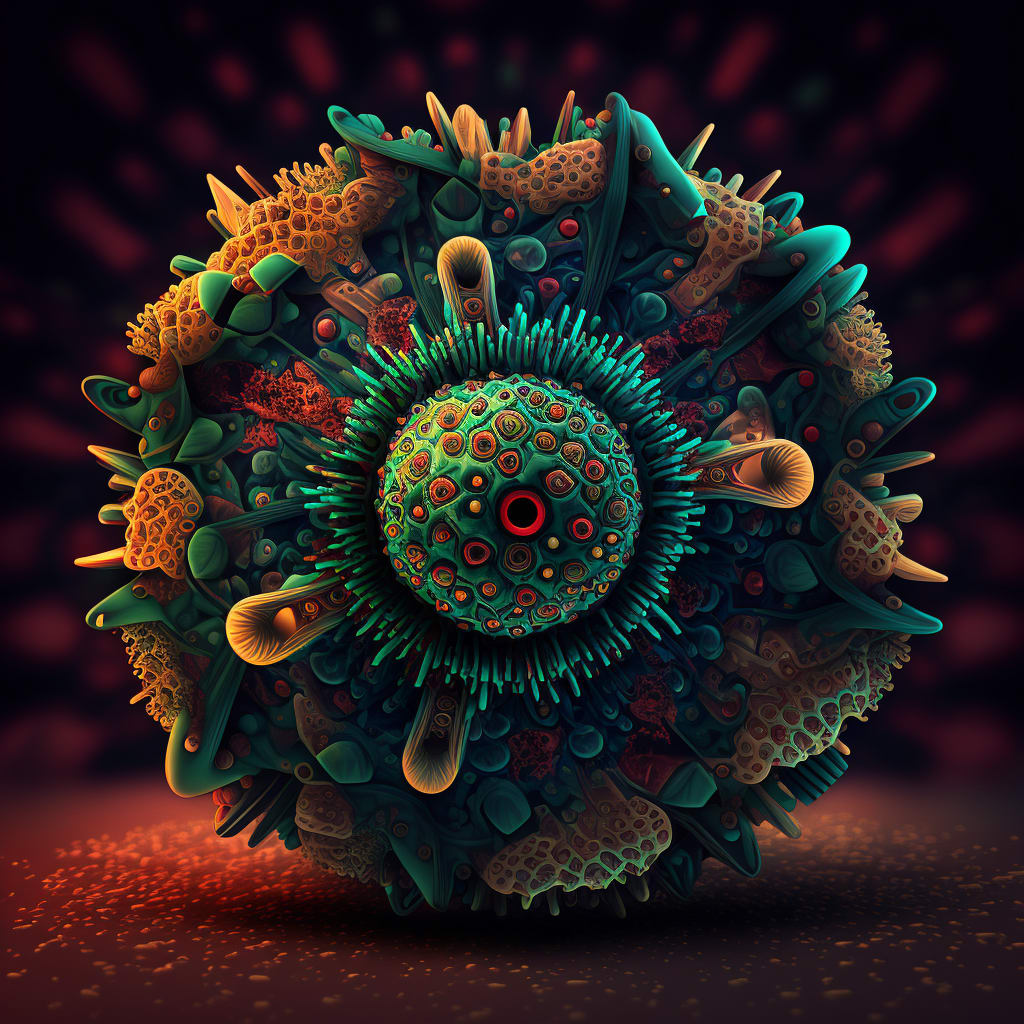Noro Virus
Understanding and Preventing Norovirus

Introduction
Norovirus is a highly contagious virus that causes inflammation of the stomach and intestines, leading to symptoms such as nausea, vomiting, diarrhea, and stomach cramps.
It is often referred to as the "stomach flu" and is spread through contact with an infected person, consuming contaminated food or water, or touching contaminated surfaces and then touching the mouth.
There is no specific treatment for norovirus infection, and it typically resolves on its own within a few days.
Prevention measures include practicing good hand hygiene, washing fruits and vegetables thoroughly, and properly cleaning and disinfecting surfaces.
Norovirus, also known as the "norwalk virus," is a highly contagious virus that causes acute gastroenteritis, an inflammation of the stomach and intestines.
This can lead to symptoms such as nausea, vomiting, diarrhea, and stomach cramps.
The virus is responsible for over 90% of all non-bacterial outbreaks of gastroenteritis worldwide.
Transmission
Norovirus is spread through,
- contact with an infected person,
- consuming contaminated food or water,
- or touching contaminated surfaces and then touching the mouth.
- The virus can be present in the feces or vomit of an infected person and can survive for several days on surfaces, even after cleaning.
This makes it particularly difficult to control and prevent the spread of the virus.
Symptoms
Symptoms of norovirus infection usually appear within 12-48 hours of exposure and can last for 1-3 days.
In some cases, the symptoms can last for a week or longer.
The most common symptoms include,
- Nausea,
- Vomiting,
- Diarrhea,
- Stomach cramps, and fever.
- Some people may also experience headaches, muscle aches, and fatigue.
Diagnosis
A sample of your stool (faeces) may be sent to the laboratory for testing during an outbreak of infection of the gut (gastroenteritis).
This is to help identify the type and source of the infection. However, in most cases testing is not necessary because the treatment is usually the same for many causes of gastroenteritis.
Is Dangerous?
Lactose intolerance can sometimes occur for a period of time after norovirus infection.
If you can manage to drink plenty of fluids then dehydration is unlikely to occur, or is only likely to be mild and will soon recover as you drink.
Lactose intolerance leads to bloating, tummy (abdominal) pain, wind and watery stools after drinking milk. Your gut (intestinal) lining can be damaged by the episode of infection of the gut (gastroenteritis).
During an episode of gastroenteritis, certain medicines that you may be taking for other conditions or reasons may not be as effective.
This is because the diarrhoea and/or vomiting means that reduced amounts of the medicines are taken up (absorbed) into your body. If they do occur, they can include the following:
Lack of fluid (dehydration) and salt (electrolyte) imbalance in your body. This leads to lack of an enzyme called lactase that is needed to help the body digest the milk sugar lactose.
Speak with your doctor or practice nurse if you are unsure of what to do if you are taking other medicines and have gastroenteritis.
It occurs if the water and salts that are lost in your stools (faeces), or when you have been sick (vomited), are not replaced by you drinking adequate fluids. Examples of such medicines are medicines for epilepsy, diabetes and contraception.
Complications of norovirus infection are not very common.
Reduced effectiveness of some medicines.
Irritable bowel syndrome is sometimes triggered by a bout of gastroenteritis. The condition gets better when the infection is over and the intestinal lining heals.
Persistent diarrhoeal syndromes may (rarely) develop. Severe dehydration can lead to a drop in your blood pressure. If dehydration is not treated, kidney failure may also develop. This can cause reduced blood flow to your vital organs. It is known as secondary or acquired lactose intolerance.
Treatment
There is no specific treatment for norovirus infection, and the condition typically resolves on its own within a few days.
In most cases, the best course of action is to stay hydrated by drinking fluids and electrolyte solutions.
Over-the-counter medications such as acetaminophen or ibuprofen can help to relieve symptoms such as fever, headache, and muscle aches.
Prevention
Prevention measures include practicing good hand hygiene, washing fruits and vegetables thoroughly, and properly cleaning and disinfecting surfaces.
It is also important to stay away from people who are sick, and to avoid sharing personal items such as towels and utensils.
Norovirus is a significant public health concern, particularly in places where people live in close quarters, such as hospitals, nursing homes, and schools.
Outbreaks can occur quickly and can spread quickly. In these types of settings,
- It is important to have a plan in place to control the spread of the virus,
- Including isolating infected individuals,
- Cleaning and disinfecting surfaces, and educating staff and residents about the virus and how to prevent the spread of infection.
It is also important to note that norovirus can also be contracted through contaminated food, particularly in settings such as cruise ships, hotels, and restaurants.
In these cases, it is essential to follow food safety guidelines, including properly preparing and storing food, and properly washing fruits and vegetables.
Conclusion
Norovirus is a highly contagious virus that causes acute gastroenteritis and is responsible for over 90% of all non-bacterial outbreaks of gastroenteritis worldwide.
It is spread through contact with an infected person, consuming contaminated food or water, or touching contaminated surfaces and then touching the mouth.
There is no specific treatment for norovirus infection, and it typically resolves on its own within a few days.
Prevention measures include practicing good hand hygiene, washing fruits and vegetables thoroughly, and properly cleaning and disinfecting surfaces.
It is also important to have a plan in place to control the spread of the virus in settings such as hospitals, nursing homes, and schools.
About the Creator
Kavithran Shakthi
A person who is concerned with designed to have little or no damaging effect on the humanity
Enjoyed the story? Support the Creator.
Subscribe for free to receive all their stories in your feed. You could also pledge your support or give them a one-off tip, letting them know you appreciate their work.





Comments
There are no comments for this story
Be the first to respond and start the conversation.